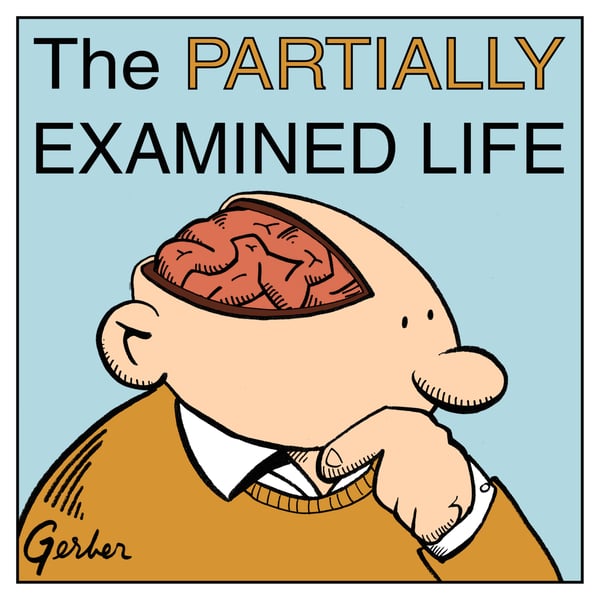Ep. 350: Rorty on Justification and Essentialism (Part One)
The Partially Examined Life Philosophy Podcast
Mark Linsenmayer
4.6 • 2.3K Ratings
🗓️ 16 September 2024
⏱️ 51 minutes
🧾️ Download transcript
Summary
On "Universality and Truth" and "Pan-Relationalism," which are lectures 3-5 in Richard Rorty's Pragmatism As Anti-Authoritarianism.
How do we justify democracy? Rorty says we don't have to refer to transcendent Truth or Good to do this. He also denies the disinction between essential and accidental properties, and in fact between substance and property: Everything is just described in terms of its relations to other things, and which relations are important are not intrinsic to the thing, but a matter of a speaker's purposes.
Get more at partiallyexaminedlife.com. Visit partiallyexaminedlife.com/support to get ad-free episodes and bonus content.
If you like our podcast, try the Saga Thing podcast.
Transcript
Click on a timestamp to play from that location
| 0:00.0 | You're listening to the partially examined life a podcast by some guys who at one point |
| 0:11.3 | set on doing philosophy for a living, but then thought better of it. |
| 0:14.8 | Our question for episode 350 is something like, what should a pragmatist say about truth |
| 0:20.4 | and essentialism? |
| 0:22.1 | We read lectures three through five about epistemology continuing |
| 0:26.8 | in Richard Rorty's pragmatism as anti-authoritarianism in 1997. |
| 0:31.6 | For more information about the text and the podcast, please see partial examined life.com. |
| 0:37.0 | This is Mark Linton Meyer, convincing to all possible audiences in Madison, Wisconsin. |
| 0:42.0 | This is Seth Paskin at a cocktail party with all the major figures in the history of philosophy in Austin, Texas. |
| 0:49.0 | This is Westallown, only what I am in virtue of my relations to other things in Cambridge, |
| 0:56.1 | Massachusetts. This is Dylan Casey convicted by the charge of |
| 0:59.6 | performative self-contradiction in Madison, Wisconsin. |
| 1:02.3 | So we had read the beginning of this self-contradiction in Madison, Wisconsin. |
| 1:03.4 | So we had read the beginning of this book last time, focusing largely on religion, but we could not |
| 1:08.7 | help ourselves in getting into the epistemology since that is clearly the more interesting part of this. |
| 1:15.9 | The book is as a whole about promoting democracy and so in this, the main thing we read, it was sort of two lectures stuffed together into one chapter presentation called universality and truth. |
| 1:29.0 | But then after that was a lecture called pan-relationalism, which was at least kind of clear in some ways. |
| 1:36.5 | We sort of made optional, there was one more epistmological lecture after that called |
| 1:40.6 | against depth, which is just really giving some implications of pan-relationalism |
| 1:46.0 | and getting into some examples that we won't get into about qualia |
| 1:50.0 | and heartesian skepticism and things, |
| 1:52.0 | but these are reasonable things to bring up, |
... |
Please login to see the full transcript.
Disclaimer: The podcast and artwork embedded on this page are from Mark Linsenmayer, and are the property of its owner and not affiliated with or endorsed by Tapesearch.
Generated transcripts are the property of Mark Linsenmayer and are distributed freely under the Fair Use doctrine. Transcripts generated by Tapesearch are not guaranteed to be accurate.
Copyright © Tapesearch 2025.

